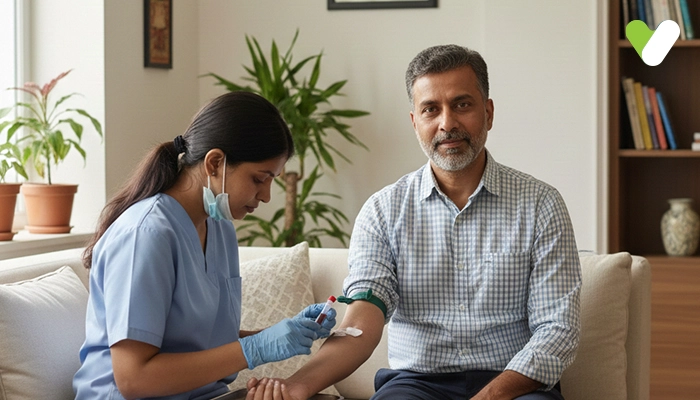There are numerous medical tests that we require periodically, especially with the onset of age. However, did you know that there are several medical tests after 30 that you should not neglect? Here’s taking a closer look at some of these tests that will help you preventively combat budding issues and fix them with proper treatment before they get out of hand.
|
Age Group- Post 30 |
|
Gender- Both Men & Women |
|
Test Types- |
|
CBC (Complete Blood Count)- Diagnosis of infections, anemia, specific cancer types. |
|
Blood Pressure Test- Tested to diagnose whether there is a normal reading. |
|
Blood Sugar Test- Tested to diagnose and detect diabetes and take the reading. |
|
Lipid Profile- Tests heart health by tracking triglycerides, cholesterol, and HDL/LDL levels. |
|
ECG- Used for detecting possible heart ailments. |
|
Liver Function Test- Done to find damage, hepatitis B/C and fatty liver. |
|
Kidney Function Test- Done for determining the health of kidney functions. |
|
Urine Analysis- Tests the presence of sugar, proteins, and blood in urine samples for detecting ailments. |
|
Other Tests- Thyroid Function Test, Pap Smear (for Women), and Vitamin D Deficiency. Checking for STIs is also recommended. |
Importance of Medical Tests After 30
Going for an annual health checkup after 30 is highly recommended by doctors and medical experts for several reasons. Periodic medical tests will tell you about the condition of your body and its vital organs, while also helping diagnose any possible conditions that you may unknowingly have or diseases that you may have contracted.At the same time, it will help you understand your body better and adopt lifestyle and other changes or implement treatment plans for a healthier life.
Medical Tests To Be Done After 30
Here are some of the tests that should be a part of your health checkup routine after 30-1. CBC (Complete Blood Count)
The CBC is a medical test for men and women which helps in the diagnosis of specific conditions such as particular cancer types, anemia, and other infections. This is also a crucial medical test for women since they suffer from anemia which indicates iron deficiencies.This may require supplements and other lifestyle changes as advised by the doctor. If the reading is normal, you can again do it a year later.
2. Blood Pressure Test
The ideal reading is 120/80 and if this stays normal, then you can get tested once again in the following year. If the reading is far from normal, then the doctor may guide you with some lifestyle changes and steps to get it back on track.3. Blood Sugar Test
This test happens after a duration of 12 hours, which we know as the fasting period. This helps in the detection of diabetes and a reading below 99 indicates normal, while anything between 100-110 is indicative of pre-diabetes conditions. Anything more than 110 clearly indicates the presence of diabetes in the body.In the scenario where you are suffering from pre-diabetes and diabetes, there is an extra test, namely HbA1C that is the indicator of average levels of blood sugar over a period of three months. Annual testing is always recommended if your reading stays normal.
4. Lipid Profile Test
Lipid profile tests are usually accurate in determining the health of your heart. This type of blood test helps in measuring the total amount of triglycerides, cholesterol, LDL and HDL levels. The triglyceride and LDL level should be less than 130 while HDL levels should be lower than 60 as well.Doing the test at least once every two years is highly recommended for those who have perfectly normal test readings. For those who are obese/overweight and those with heart conditions/diabetes, annual check-ups may be recommended by the doctor.
